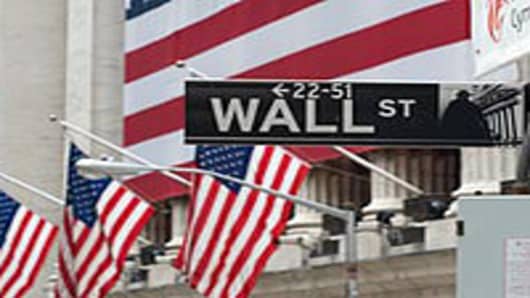While Goldman Sachs—and the banking sector in general—will survive the securities fraud allegations against the investment banking giant, the case could become a landmark event that changes Wall Street forever, analysts say.
Investors seem to have recovered from Friday's news that Goldman faces civil charges that it deceived investors on a package of toxic mortgages put together for an investor who profited from the securities' failure.
Major averages were slightly lowerMonday while Goldman shares remained under pressure but far less so than Friday's plunge.
But most experts believe the damage will reverberate far into the future and permanently change Goldman, perhaps Wall Street's most revered financial firm.
"[A]ll we are certain of at this time is that life within Goldman Sachs shall not be fun for a very, very long while, nor shall it ever be the same as it was only a few days ago," hedge fund manager Dennis Gartman wrote in his "Gartman Letter" report. "The 'game' for Goldman Sachs has changed materially. Its clients and employees shall have to come to grips with that fact. Goldman of the future will not be the Goldman of the past."
The Goldman charges unfold at a time when Washington is drawing its sights ever tighter on Wall Streetand some of the risky business practices that led to the financial crisis.
That Washington would pick on so venerable an institution—and a leading donor to the ruling Democratic party—indicated to some just how much the landscape is likely to shift. The timing continued to raise questions about whether the Securities and Exchange Commission was to some extent carrying out political strategy for the White House.
- Read Goldman's Memo to Clients Regarding the Charges
"The SEC is an independent agency so this should not be the case, but it is hard to believe the timing of the events is mere coincidence," Mike O'Rourke, chief strategist at BTIG in New York, said in an analysis. "In addition, there could not be a more politically palpable target. With the exception of the exonerated Bear Stearns hedge fund managers, these are the only charges of note to come from an environment rife with fraud."
Despite the political stakes, Keefe, Bruyette & Woods, like other bank analysts, reiterated its generally positive stance on large bank stocks. But it also warned clients that Friday's selloff, in which the major averages dropped more than 1 percent, "could reflect investor nervousness about the impact of tough financial regulations."
"We believe the biggest challenge for investors concerning the SEC actions on Friday is how to quantify reputational risk out of the legal actions following the financial crisis," KBW wrote in a research note to clients.
Similarly, Credit Suisse maintained its "overweight" rating on Goldman, saying any fine it would have to pay the SEC should not significantly affect the company's balance sheet, but offered its own note of caution going forward.
"We view most financial scenarios for settlement/loss as very manageable relative to Goldman's current income generation, capital levels and loss of market cap post announcement," Credit Suisse told clients. "Much more worrisome to us is the potential longer-term impact of the firm's client franchise, human capital and reputation."
The mortgage securities deal with hedge fund manager John Paulslon that led to the charge was a one-time deal, sources familiar with the matter told CNBC. That indicates the threat of systemic risk is likely muted.
But focusing simply on Goldman's position "misses the overriding point," warned Gluskin Sheff chief economist David Rosenberg in his morning analysis.
"In the aftermath of every bubble, the rot still surfaces after the worst part of the crisis—as we saw with the Enron and Worldcom shenanigans following the tech wreck eight years ago," Rosenberg said. "I would not underestimate what the political implications will be—and this is not happening a year ago when the politicians were worried about bank insolvencies and a depression."
The likelihood of increased regulation against generational Wall Street practices sparked some forecasts of a significant correction in the stock market.
Investor Jim Rogers, chairman of Rogers Holdings, predicted a fairly serious pullbackafter the market's nearly 80 percent run higher since the March 2009 lows.
"Markets are overdue for a correction," Rogers told CNBC. "Any market that goes up this much, this fast, this steadily without correction—it's not normal. When that sort of things happens, the market could be setting itself up for a 15 to 20 percent correction."
Analyst Dick Bove of Rochdale Securities defended Goldman but feared a severe reaction to the controversy.
The events that unfolded Friday, he said, are "setting the state for collapse (of our financial system) one more time."




